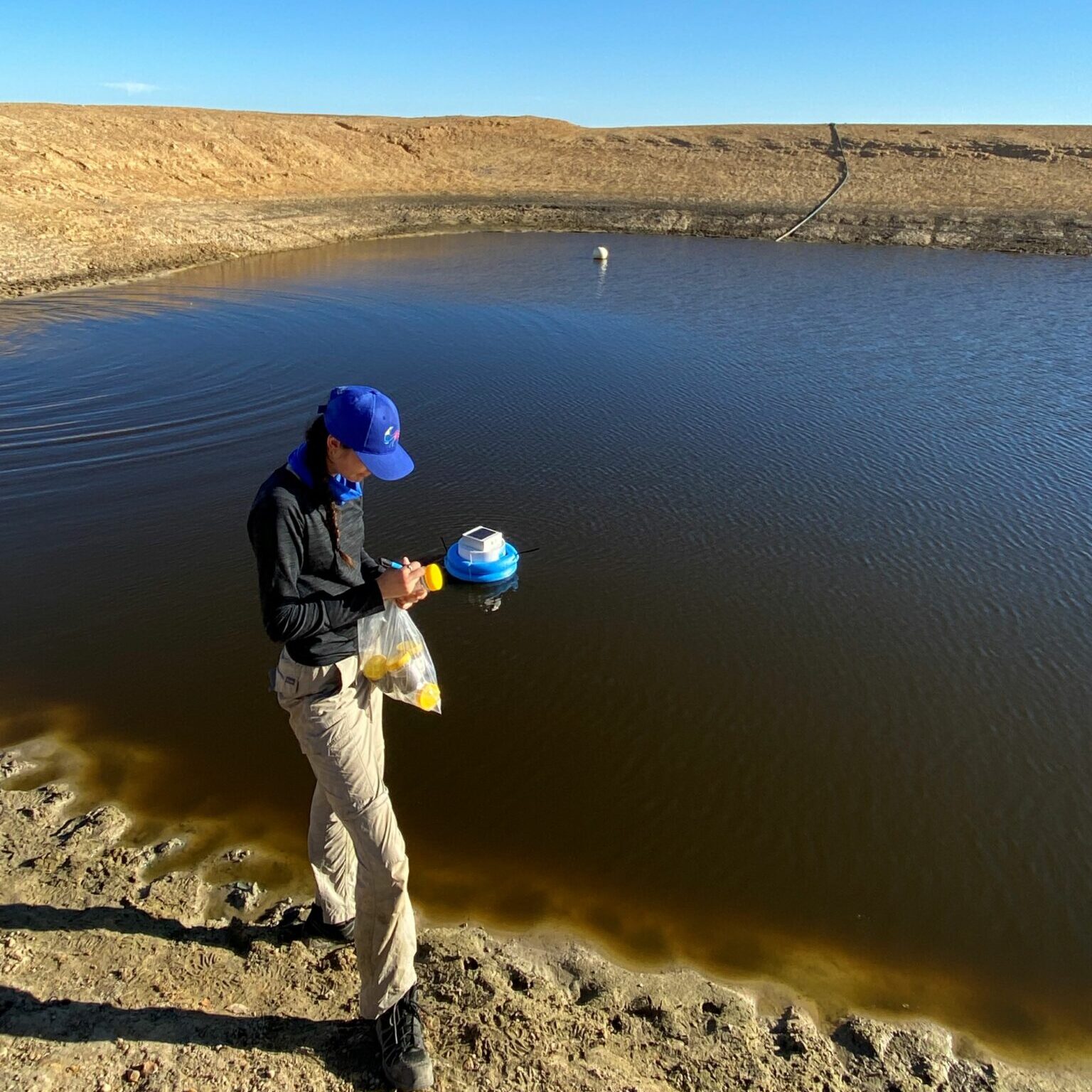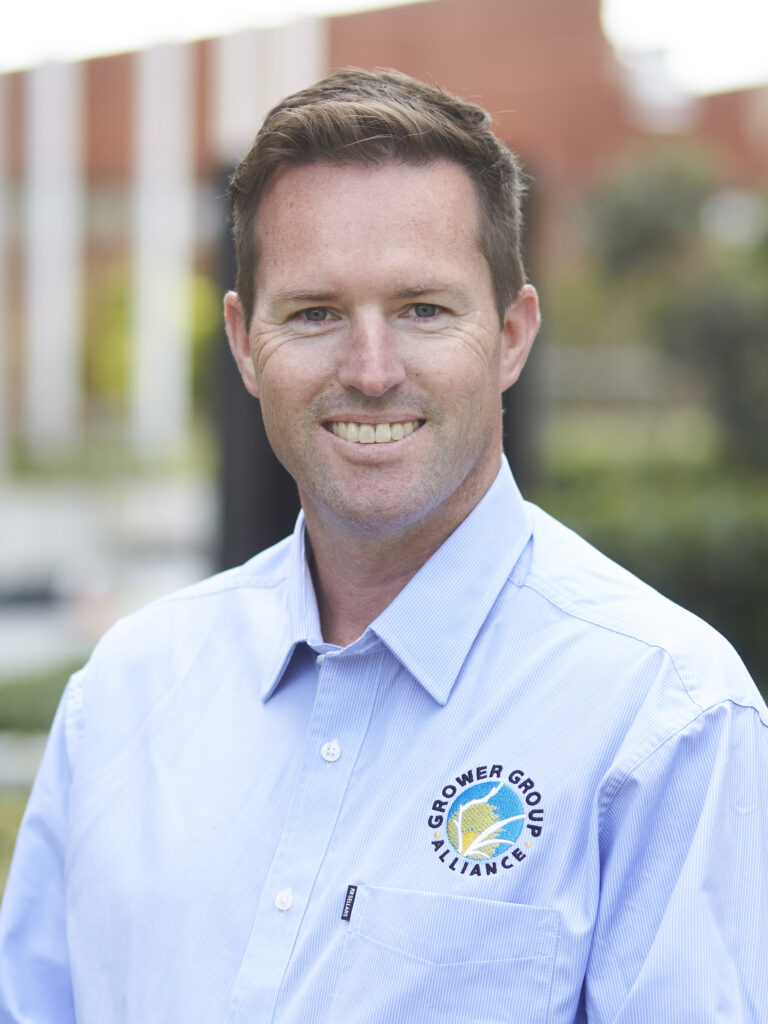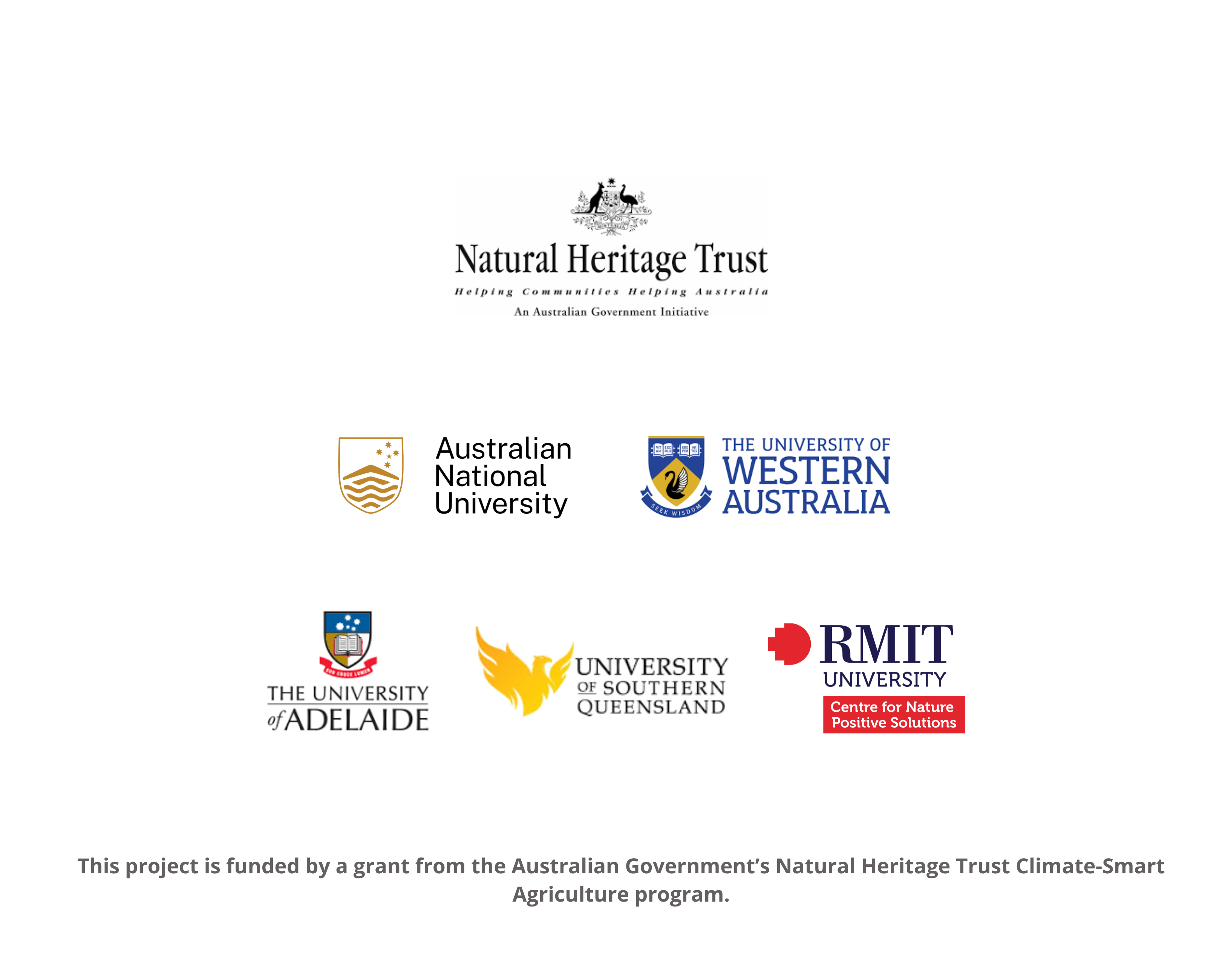The Ripple Effect project is a national, grower-led project designed to improve water security, biodiversity, and climate resilience for Australian farmers.
The project will guide growers towards multifunction water infrastructure that enhances and provides future biodiversity and carbon market opportunities while enhancing water security and quality.
Demonstration sites across Australia will support accelerated adoption of best-practice water management, to increase biodiversity and reduce emissions, strengthening farm water security, productivity, and sustainability.
Led by GGA, the project consortium includes the University of Western Australia, the Australian National University, the University of Adelaide, the University of Southern Queensland, and RMIT.
All eight national Drought Resilience Adoption and Innovation Hubs have pledged to support the
project, and will engage with grower group networks representing over 20,000 producers.
Collaboration and extension through all project partners will drive the adoption of innovation in water security and quality, biodiversity and emissions reduction to protect natural resources, improve productivity and profitability, ensuring truly national and enduring impact.
This project is funded by a grant from the Australian Government’s Natural Heritage Trust Climate-Smart Agriculture program.
Project Activities
Overall, the project aims to create a scalable, collaborative approach to sustainable water management that is accessible to farmers and land managers across Australia, enhancing productivity, profitability, and environmental resilience on a national level.
- Creating a National Knowledge Hub: This hub will consolidate existing research on water management and sustainable agricultural practices, providing best-practice guidelines and tools accessible to the agricultural community.
- Trial and Demonstrate Innovations: Demonstration sites will showcase innovative practices in water quality management, biodiversity conservation, and emissions reduction. Grower groups and industry partners will monitor and document the performance of these practices and organise events like field walks, workshops, and prepare case studies to share findings.
- Financial Benchmarking and Economic Analysis: Economic assessments will gauge the financial impact of innovations, providing cost-benefit data to guide investment decisions in sustainable water infrastructure.
- Broad Communication and Extension Strategy: A communications plan will share findings and best practices nationwide through Drought Hubs, social media, workshops, field days, and partnerships with grower networks.
- Partnership with First Nations: Collaborating with First Nations organisations to incorporate traditional knowledge and address culturally significant environmental factors at project sites.
- Increase awareness of Industry Sustainability frameworks: Demonstrate a correlation between project activities and the Australian Agricultural Sustainability Framework.
Service Delivery Areas
See the Service Delivery Areas for the project in the map below:
News
Follow the project partners on Twitter.
Resources

Preliminary Investigation of Methane Emissions from Farm Dams in Western Australia
This project aims to initiate the pilot work needed to understand how to collect and analyse methane emissions data from Western Australian farm dams.
Project Team

Daniel Kidd
Head of Projects GGA

Project Manager



RMIT University
Contact
Enquiries to project manager Tamryn Davis at GGA
Collaborators


